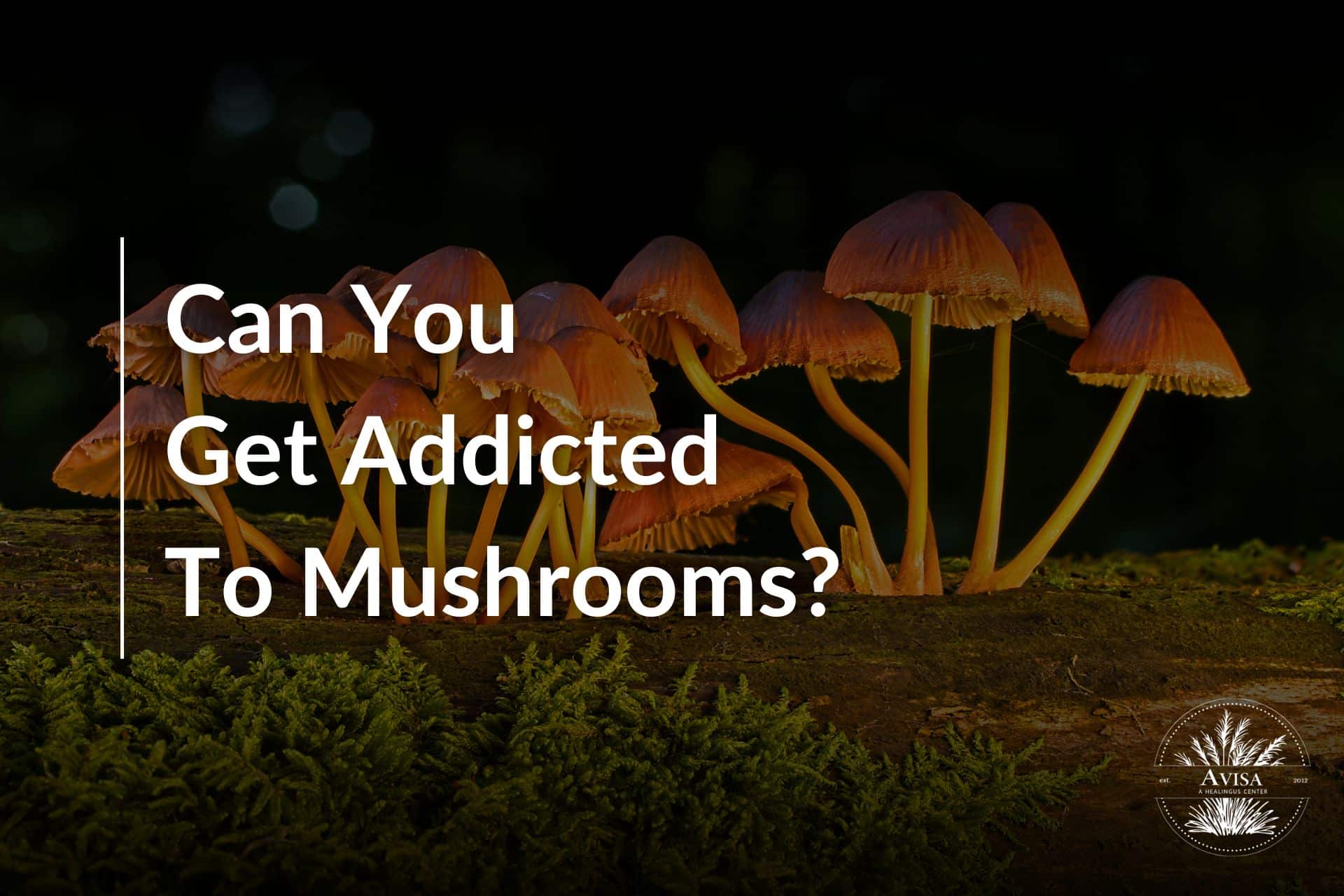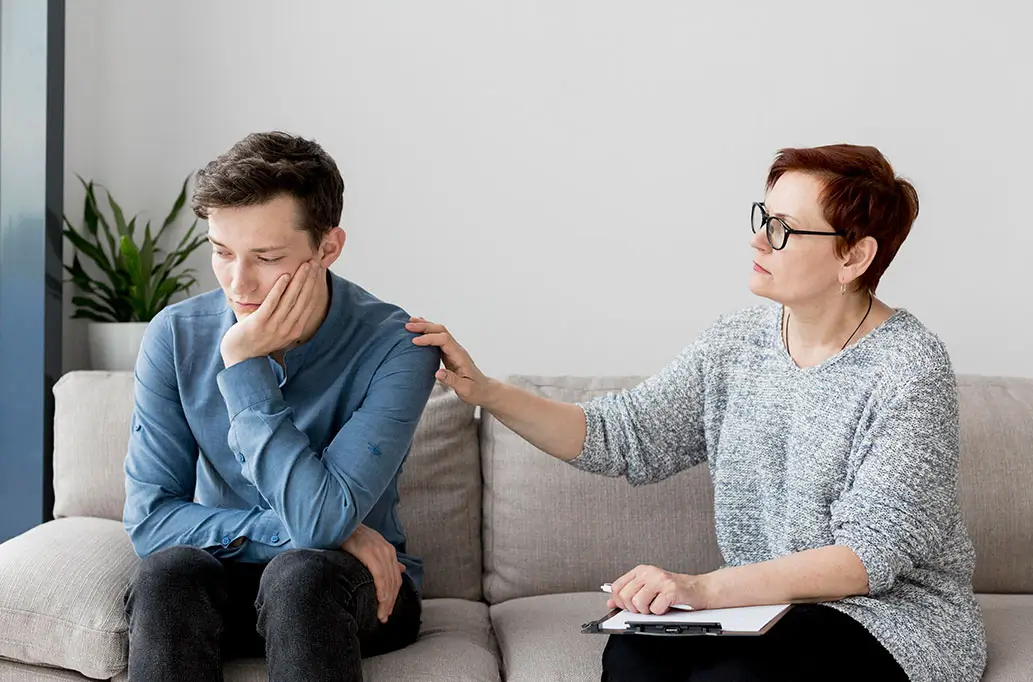Mushrooms, often celebrated for their diverse flavors and medicinal properties, come in many forms. From the culinary delights of shiitake and portobello to the psychedelic experiences induced by psilocybin-containing mushrooms, these fungi have a rich history of human interaction. However, amidst their benefits and allure, a question arises: Can you get addicted to mushrooms?
This introduction serves as a portal into the realm of mushrooms, offering a brief overview of the different types, from the gourmet mushrooms that enhance our culinary experiences to the psychoactive varieties exploring the depths of consciousness.
Concerned About Mushroom Addiction?
Risks of Mushroom Use
Physical Health Concerns
While psilocybin mushrooms are generally considered safe when used responsibly, there are potential physical health concerns associated with their use.
Nausea and Vomiting
One of the most common side effects of consuming magic mushrooms is nausea and vomiting, especially during the onset of the trip. This can vary in intensity among individuals and may contribute to discomfort during the experience.
Increased Heart Rate
Psilocybin can lead to a temporary increase in heart rate and blood pressure. While these changes are usually mild, individuals with cardiovascular issues should be cautious when using mushrooms.
Potential Interactions with Other Substances
Psilocybin can interact with certain medications or substances, such as antidepressants or MAOIs. These interactions can lead to adverse effects or reduce the effectiveness of medications.
Mental Health Risks
The mental health risks associated with psilocybin mushrooms are an important consideration, especially for individuals with pre-existing mental health conditions.
Impact on Mental Health Conditions
Individuals with a history of psychotic disorders or conditions like schizophrenia may be at risk of exacerbating their symptoms when using psilocybin mushrooms. The hallucinogenic effects can potentially trigger psychosis or other psychiatric episodes.
Exacerbation of Underlying Disorders
Psilocybin’s effects on perception and cognition can intensify emotions and thoughts. For individuals with anxiety disorders or a history of trauma, this heightened state of awareness can lead to challenging experiences.
Potential for Addiction
The question of whether psilocybin mushrooms can lead to addiction is multifaceted, involving both physical and psychological factors.
Differentiating Physical and Psychological Addiction
Unlike substances such as opioids or nicotine, psilocybin does not typically lead to physical dependence. Withdrawal symptoms associated with physical addiction are not familiar with psilocybin use.
Factors Contributing to Psychological Dependence
While psilocybin itself may not create a physical addiction, some individuals may develop a psychological dependence on the substance. Factors such as seeking escape from reality, self-medication for mental health issues, or using mushrooms as a coping mechanism can contribute to this dependence.
It’s crucial to approach psilocybin use with awareness and caution, understanding the potential risks involved. Responsible use, proper set and setting, and education about the substance can help mitigate these risks and promote safe experiences.
Recognizing a Shroom Overdose
While serious psilocybin overdoses are rare, it’s important to be aware of the signs and symptoms and know when to seek medical attention.
Common Signs and Symptoms
Understanding the signs and symptoms of a psilocybin mushroom overdose is essential for prompt intervention and assistance.
Severe Confusion
In cases of overdose, individuals may experience intense confusion and disorientation. They may be unable to communicate effectively or comprehend their surroundings.
Psychosis-like Symptoms
Overdosing on psilocybin mushrooms can lead to psychosis-like symptoms, including hallucinations, delusions, and paranoia. These symptoms can be distressing and may require immediate attention.
Panic Attacks
Panic attacks are another possible manifestation of a shroom overdose. The overwhelming sensory experiences and altered perception can trigger extreme anxiety and fear.
Severity of Symptoms
The severity of symptoms in a psilocybin mushroom overdose can vary, ranging from mild to severe.
Varying Degrees of Overdose
An overdose of psilocybin mushrooms can present in different degrees of severity. Some individuals may experience mild symptoms, such as heightened anxiety or visual distortions, while others may encounter more severe effects, such as profound confusion or psychosis.
When Medical Attention is Required
- It’s important to recognize when medical attention is necessary for a shroom overdose. If an individual exhibits severe confusion, psychotic symptoms, uncontrollable panic attacks, or signs of distress, it is crucial to seek medical help immediately.
- Medical professionals can provide supportive care and monitoring to ensure the individual’s safety. They can also help manage symptoms and provide appropriate interventions if needed.
As always, it’s essential to approach these situations with care and without judgment, prioritizing the health and safety of those involved.
Can you get addicted to mushrooms?
When discussing shrooms, a common concern is the possibility of a fatal overdose. Thankfully, unlike substances like opioids or stimulants, psilocybin overdose leading to death is extremely rare.
Common Signs and Symptoms
Understanding the signs and symptoms of a psilocybin mushroom overdose is essential for understanding how can you get addicted to mushrooms.
Severe Confusion
- In cases of overdose, individuals may experience intense confusion and disorientation. They may be unable to communicate effectively or comprehend their surroundings.
Psychosis-like Symptoms
- Overdosing on psilocybin mushrooms can lead to psychosis-like symptoms, including hallucinations, delusions, and paranoia. These symptoms can be distressing and may require immediate attention.
Panic Attacks
- Panic attacks are another possible manifestation of a shroom overdose. The overwhelming sensory experiences and altered perception can trigger extreme anxiety and fear.
The Consequences of a Bad Shroom Trip
A negative turn in a psychedelic mushroom trip can have profound immediate, and long-term effects on an individual’s mental well-being. These consequences highlight the importance of understanding the potential risks associated with psychedelic experiences.
Immediate Effects
When a trip takes a challenging turn, individuals may experience:
Intense Fear and Anxiety
- Overwhelming fear and anxiety can grip the individual, leading to feelings of panic and a sense of impending doom.
Paranoia
- Paranoia may set in, causing the individual to become suspicious and distrustful of their surroundings or the people around them.
Loss of Touch with Reality
- The line between what is real and what is a hallucination can blur significantly, resulting in confusion and disorientation.
Long-Term Impact
Even after the trip has ended, individuals may continue to experience lasting effects:
Lingering Effects Post-Trip
- Emotional sensitivity, mood swings, and difficulty concentrating can persist for days or even weeks following the trip.
Flashbacks and Persistent Anxiety
- Flashbacks, known as hallucinogen persisting perception disorder (HPPD), can occur, where individuals re-experience aspects of the trip without taking the substance.
- Persistent anxiety, primarily related to the fear of another bad trip, can linger and impact an individual’s mental well-being long after the initial experience.
These consequences emphasize the importance of approaching psychedelic experiences with caution and in a safe environment, as well as seeking support if adverse effects persist.
How Can you get addicted to mushrooms?
Determining a “safe” and the amount that Can you get addicted to mushrooms can be challenging due to various factors that influence their effects on individuals.
Challenges in Determining “Safe” Amount
The potency of psychedelic mushrooms can vary widely, making it difficult to establish a standard “safe” dosage. Individual factors such as body weight, metabolism, tolerance, and sensitivity to psilocybin contribute to the variability in response.
Considerations
- Body Weight: Heavier individuals may need more; lighter may be more sensitive.
- Metabolism: Affects onset and duration of effects.
- Tolerance: Develops with use, needing higher doses over time.
- Sensitivity: Genetics and brain chemistry influence response.
Starting with a low dose and having a sober trip sitter is advised, especially for newcomers to psychedelics.
Treatment for Shroom Overuse
Immediate Medical Attention
When faced with shroom overuse or overdose, immediate medical attention is crucial for safety and stabilization.
Importance of Seeking Professional Help:
- It is essential to seek professional medical help promptly to address the situation.
- Medical professionals can provide necessary monitoring and interventions to manage the effects of shroom overuse.
Supportive Care for Overdose:
- In cases of overdose, medical professionals may administer sedatives or antipsychotic medications to manage severe symptoms.
- Creating a calm and safe environment is crucial to help the individual navigate the effects of an overdose.
Long-Term Recovery Options
Recovery from shroom overuse often involves ongoing support and therapeutic interventions to address underlying issues.
Therapy and Support Groups
- Participating in therapy sessions and support groups can provide valuable insight and emotional support.
- These avenues allow individuals to process their experiences and connect with others who understand their struggles.
Cognitive-behavioral therapy (CBT)
- CBT is an effective therapeutic approach for substance use disorders, including shroom overuse.
- It helps individuals identify and change negative thought patterns and behaviors related to substance use.
Substance Abuse Programs
- Enrolling in substance abuse treatment programs, such as residential or outpatient programs, offers a structured approach to recovery.
- These programs provide a comprehensive treatment plan addressing the physical, psychological, and social aspects of addiction.
Seeking a combination of these treatment modalities and ongoing support can empower individuals to work toward recovery and regain control over their lives.
Tired of fighting addiction and mental health struggles?
Ignoring both deepens the struggle. Our holistic approach—detox, therapy, and medication-assisted treatment—can help you heal. Take the first step today.
Conclusion
The question: Can you get addicted to mushrooms, lies more in the psychological domain than physical dependency? To enjoy the benefits of mushrooms responsibly, awareness and caution are paramount. Starting with a low dose, understanding personal factors like metabolism and sensitivity, and having a supportive environment can enhance the safety of mushroom use.
If you are struggling with overuse, remember that help is available. Seeking professional assistance, participating in therapy, and connecting with support groups can aid in recovery. Let’s approach mushrooms with respect, education, and mindfulness, ensuring positive experiences and well-being.
Whether exploring the culinary wonders or the psychedelic realms of mushrooms, prioritize safety and well-being. Educate yourself on responsible use, and remember that Avisa is always available. Your journey with mushrooms can be enriching and transformative, guided by awareness and care.










